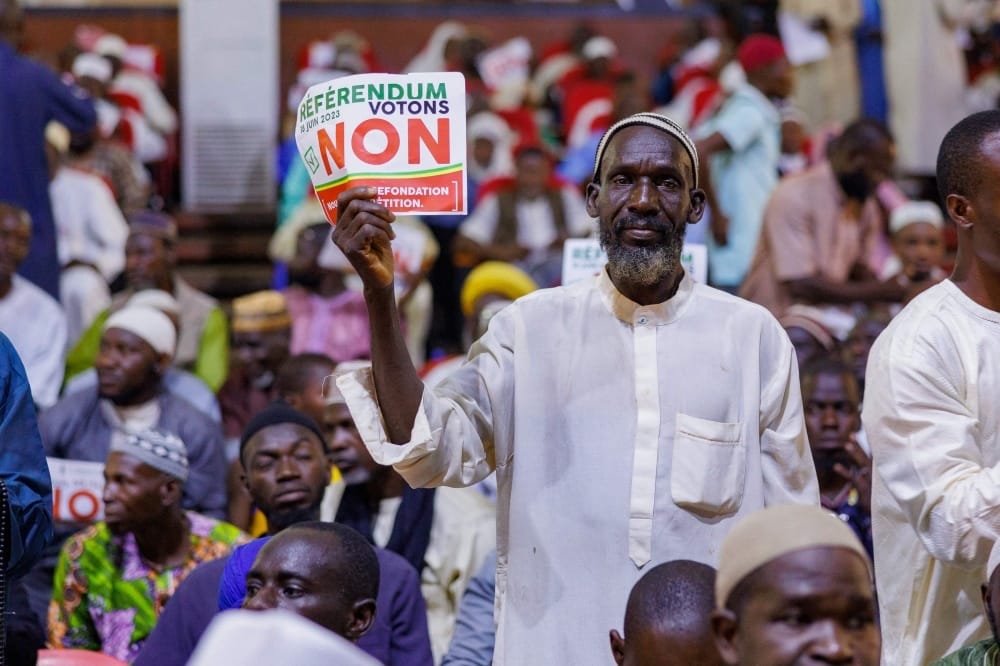Massive rallies precede Mali constitutional referendum in Bamako

Tens of thousands of supporters and opponents of the proposed Malian constitution have took to the streets of the capital, Bamako, on Friday in separate rallies ahead of the upcoming referendum.
Approximately 50,000 individuals supporting the “yes” campaign, endorsed by the military government, gathered in a stadium located on the outskirts of Bamako. The event was attended by Assimi Goita, the leader of the junta. Goita, while warmly greeting the crowds, refrained from delivering a speech during the gathering.

Meanwhile, opponents of the draft text filled the 3,000 seats of the Culture Palace in Bamako until a power outage occurred, forcing them to join the crowd gathered outside. “We are here to voice our opposition to secularism,” said Imam Issa Djire to AFP. Djire’s sentiment echoes that of influential religious organizations and figures who reject the idea of classifying Mali, a predominantly Muslim nation, as a secular state.
Imam Mahmoud Dicko, a key figure in the protest movement that preceded the ousting of former President Ibrahim Boubacar Keita in a 2020 coup, was among the “no” supporters present at the rally.
The constitutional referendum in Mali is scheduled to take place on Sunday, with the results expected within 72 hours. The proposed constitution is part of a series of reforms initiated by the junta to justify the delay in the transition to civilian rule until 2024.
The draft text seeks to enhance the powers of the president and includes provisions for granting amnesty to leaders involved in previous coups, which has fueled speculation that Goita may run in future elections despite the military’s earlier pledge to the contrary.
Moreover, the proposed constitution emphasizes the significance of the armed forces, national sovereignty, and the fight against corruption. It also legitimizes traditional authorities and languages, while introducing the establishment of a Senate.
The outcome of the referendum will have far-reaching implications for the future of governance in Mali, as it will shape the country’s political landscape and determine the direction of its democratic transition.














